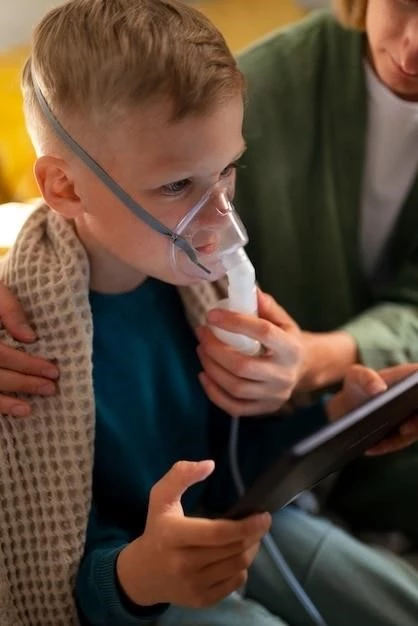Causes of Allergic Bronchopulmonary Aspergillosis
Fungal Exposure
Pre-existing Lung Conditions
Fungal Exposure
Exposure to Aspergillus mold spores in damp environments such as compost piles, basements, or air conditioning systems can trigger ABPA in individuals with hypersensitivity to the fungi;
Pre-existing Lung Conditions
Individuals with conditions like asthma or cystic fibrosis are at higher risk of developing ABPA due to compromised lung function and the immune system’s response to Aspergillus antigens.
Symptoms and Diagnosis of Allergic Bronchopulmonary Aspergillosis
Respiratory Symptoms
Respiratory symptoms of ABPA include wheezing, coughing, shortness of breath, and production of thick, brownish mucus. These symptoms can mimic those of asthma or cystic fibrosis.
Diagnostic Tests
Diagnostic tests for ABPA may include blood tests to check for elevated levels of specific antibodies, sputum cultures, imaging studies like chest X-rays or CT scans, and pulmonary function tests.
Treatment options for Allergic Bronchopulmonary Aspergillosis
Antifungal Medications
Antifungal medications such as itraconazole or voriconazole are commonly used to treat ABPA by targeting the Aspergillus fungi causing the allergic response in the lungs.
Corticosteroids
Corticosteroids like prednisone are prescribed to reduce inflammation in the airways and lungs of ABPA patients, helping to alleviate symptoms and prevent exacerbations of the condition.

Managing Allergic Bronchopulmonary Aspergillosis in Children
Special Considerations for Pediatric Patients
Managing ABPA in children requires close monitoring of medication dosages, growth patterns, and potential side effects to ensure optimal treatment outcomes without compromising their overall health and development.
Allergic Bronchopulmonary Aspergillosis in Asthmatic Patients
Interaction with Asthma Symptoms
ABPA can exacerbate asthma symptoms in asthmatic patients, leading to increased wheezing, coughing, chest tightness, and difficulty breathing. Proper management of both conditions is essential for effective treatment.
Complications of Allergic Bronchopulmonary Aspergillosis
Lung Function Impairment
ABPA can lead to persistent inflammation and scarring in the lungs, causing a decline in lung function over time. Regular monitoring and appropriate treatment are crucial to prevent irreversible damage.
Recurrent Infections
ABPA weakens the immune system’s ability to fight off infections, increasing the risk of recurrent respiratory infections. Proper treatment and preventive measures are essential to reduce the frequency of infections in ABPA patients.
Lifestyle Changes for Allergic Bronchopulmonary Aspergillosis Patients
Environmental Modifications
Patients with ABPA should make environmental changes like using air purifiers, controlling humidity levels, and avoiding exposure to mold to reduce the risk of fungal spore inhalation and asthma exacerbations.
Dietary Adjustments
Dietary adjustments for ABPA patients may include reducing sugar intake, avoiding foods that trigger inflammation, and incorporating anti-inflammatory foods like fruits, vegetables, and omega-3 fatty acids to support lung health.
Research and Innovations in Allergic Bronchopulmonary Aspergillosis
Current Studies and Breakthroughs
Ongoing research focuses on developing personalized treatments, improved diagnostic tools, and understanding the role of the immune system in ABPA for better management and outcomes in patients.
